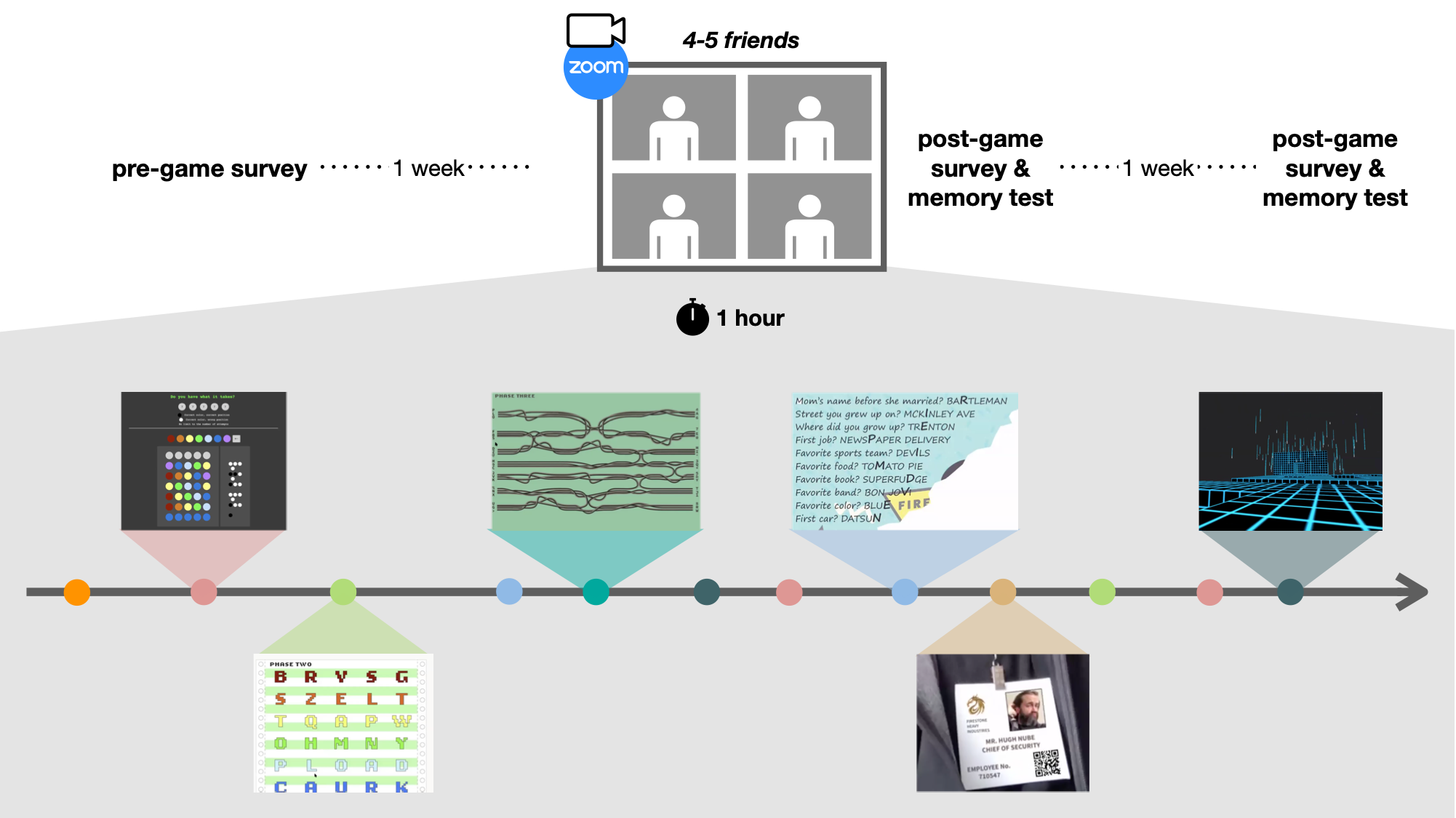How would you react if you found out that your partner has been unfaithful? Or that the slacker in your high school class is now immensely successful? We make predictions about how people will act all the time - what happens when those predictions are wrong? In order to form cohesive representations of others, we often need to integrate conflicting information about them. Furthermore, our pre-existing feelings towards these people, as well as our motivations and goals, influence how and when we update our beliefs about them.
This process can happen in a number of different contexts. For example, when you witness a close friend in a novel environment, you may witness them act in novel ways. To investigate this phenomenon, we had groups of friends assess each other before and after completing a virtual escape room together. In another study, I analyzed tweets about public figures accused of sexual assault to understand how people change their perceptions of others’ morality when they commit a moral violation. I’ve also investigated the interdependence of impression updating with others’ perceptions of us by examining the role of mentalizing brain regions in evaluating romantic interest.
These three studies were the basis of my Ph.D. dissertation, which you can read here.
As a postdoc at Columbia’s Center for Justice, I’m applying principles of motivated impression updating to group perceptions by investigating what types of information cause the general public to change their beliefs about incarcerated people.
 A schematic of the virtual escape room study. Image made by Wangjing Yu, a collaborator on the project.
A schematic of the virtual escape room study. Image made by Wangjing Yu, a collaborator on the project.
Related work
Silver, B.M., Baldassano, C., Davachi, L., Ochsner, K.N. (in prep). The mentalizing network updates neural representations of romantic interest in response to social feedback. https://doi.org/10.31219/osf.io/3tc4m_v2
Silver, B.M., Yu, W., Davachi, L., Ochsner, K.N. (2025). What are my friends really like? How we change our perceptions of familiar others’ traits and actions. Personality and Social Psychology Bulletin. https://doi.org/10.1177/01461672251320476
Silver, B.M., Ochsner, K.N. (2024). Changes in Online Moral Discourse About Public Figures During #MeToo. Affec Sci. https://doi.org/10.1007/s42761-024-00250-4
Abstracts from the 2022 Annual Meeting of the Society for Affective Science. Affec Sci (2023). https://doi.org/10.1007/s42761-022-00175-w
Silver, B.M., Baldassano, C., Davachi, L., Ochsner, K.N. Always on my mind: The role of the dmPFC in responding to social feedback from potential romantic partners. Poster presented at the Social and Affective Neuroscience Society. Toronto, ON. 2024. View my poster here.
Silver, B.M., Baldassano, C., Davachi, L., Ochsner, K.N. Do you like me back? Impression formation and motivated memory for potential romantic partners. Poster presented at the Social and Affective Neuroscience Society. Santa Barbara, CA. 2023. View my poster here.
Silver, B.M., Yu, W., Davachi, L., Ochsner, K.N. What are my friends really like? Motivated perceptions after completing a virtual escape room. Poster presented at the Society for Affective Science. Long Beach, CA. 2023. View my poster here.
Silver, B.M., Baldassano, C., Davachi, L., Ochsner, K.N. Romantic remembering: Social information determines individualized reward value and motivates memory. Poster presented at the Social and Affective Neuroscience Society. Online. 2022.
Silver, B.M., Ochsner, K.N. Morality and #MeToo: Motivated impression updating on Twitter. Flash talk presented at the Society for Affective Science; Online. 2022.